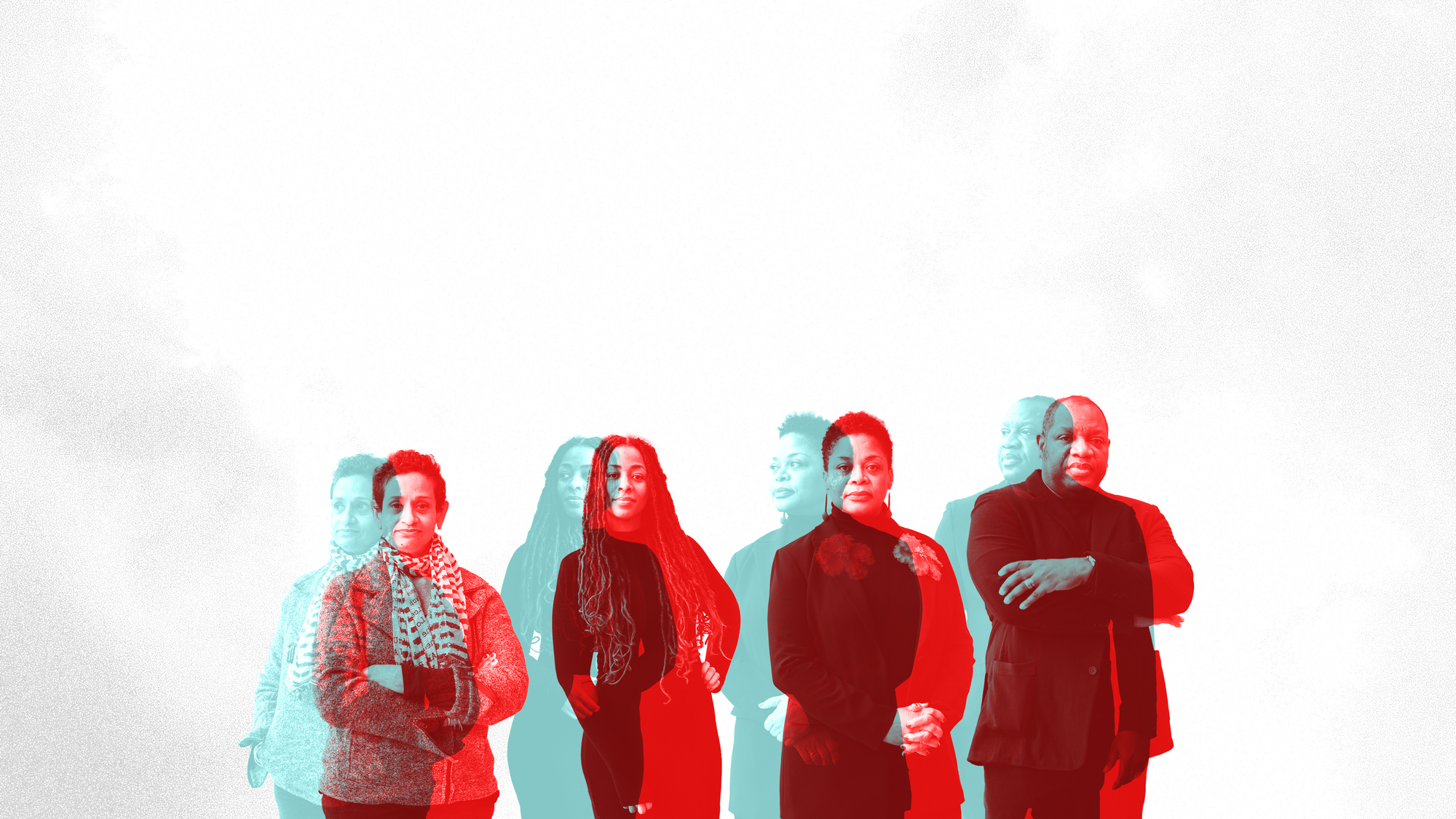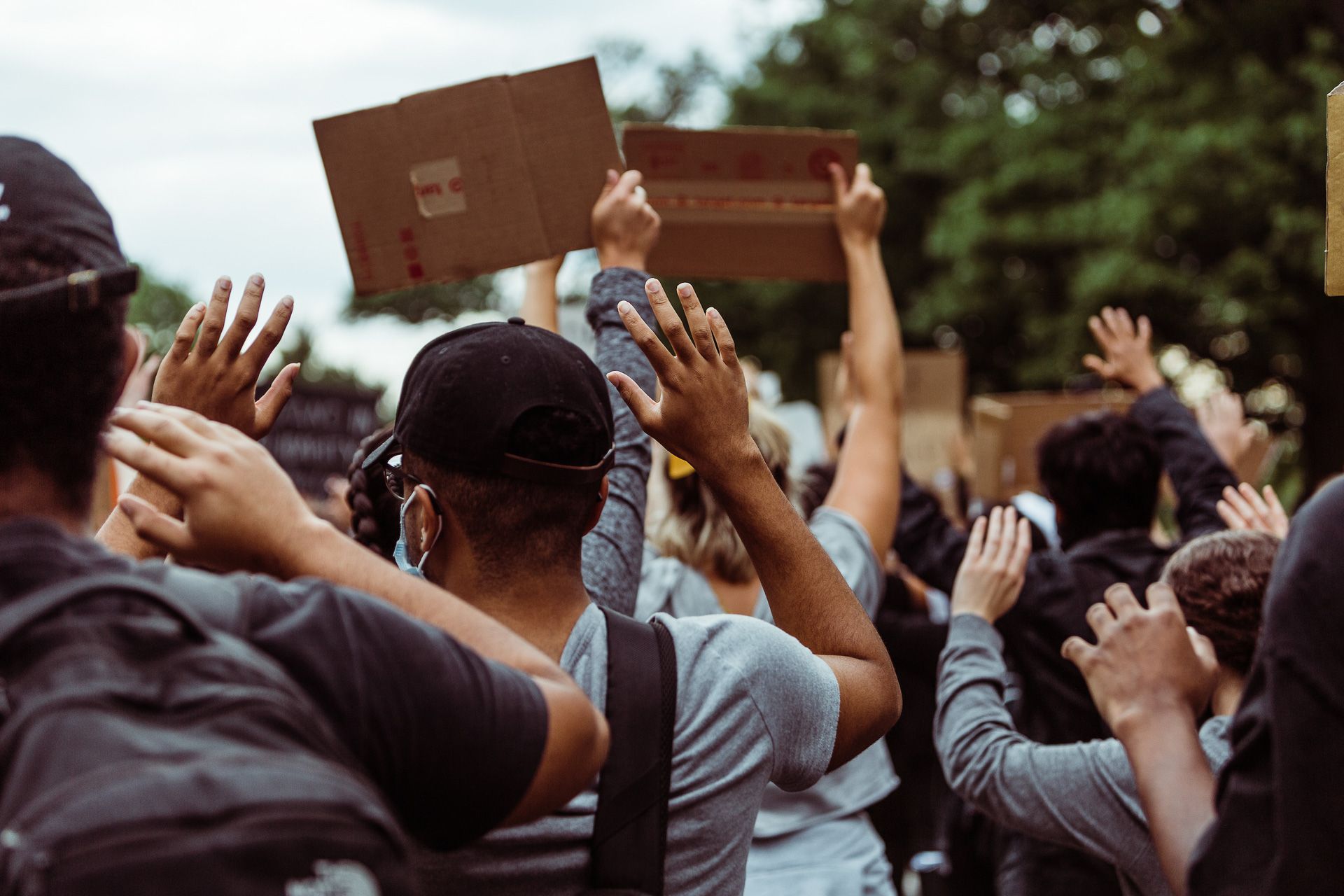Above: [Left to Right] Paula Austin, assistant professor of history and African American Studies; Saida Grundy, assistant professor of Sociology and African American Studies; Crystal Williams, Vice President and Associate Provost for Community & Inclusion; Louis Chude-Sokei, director of the African American Studies Program



